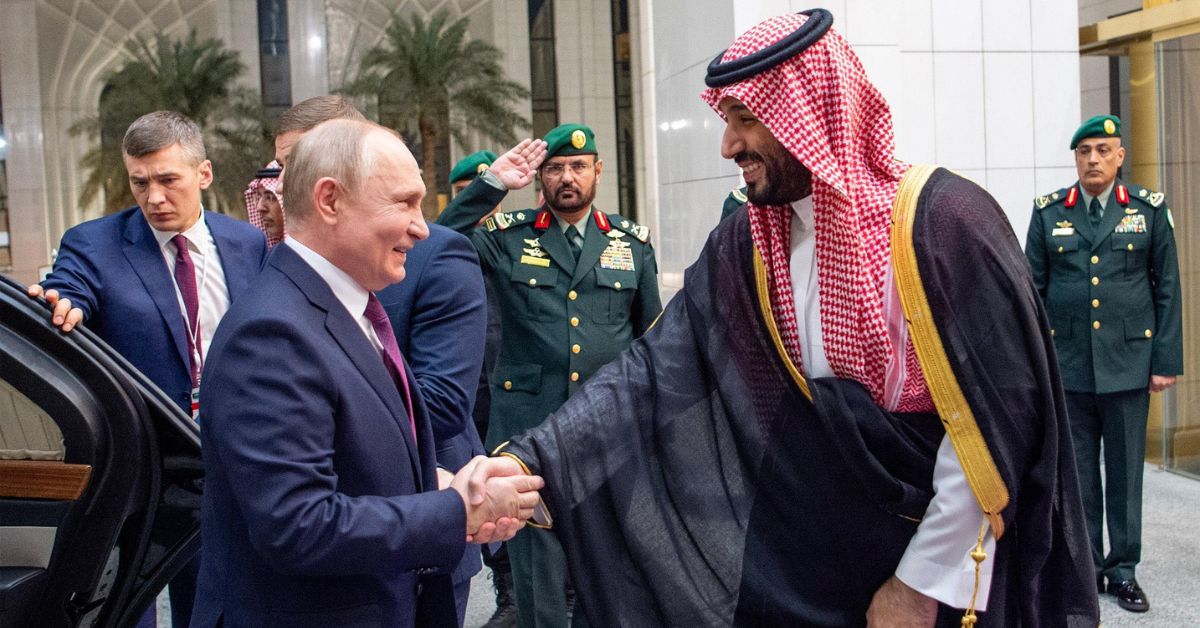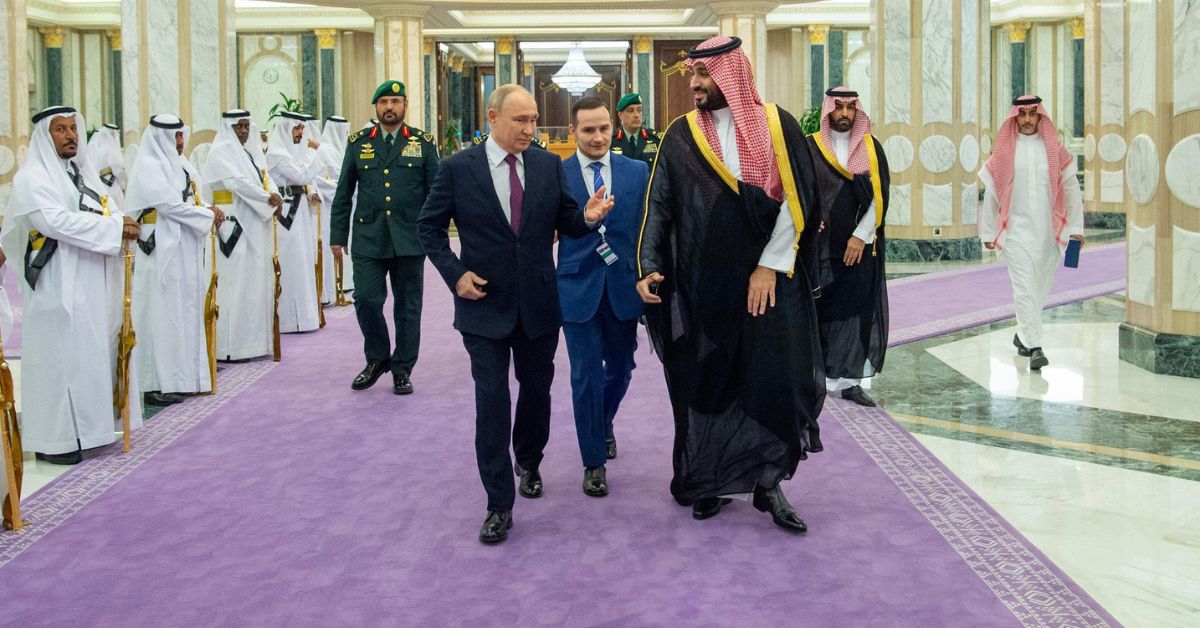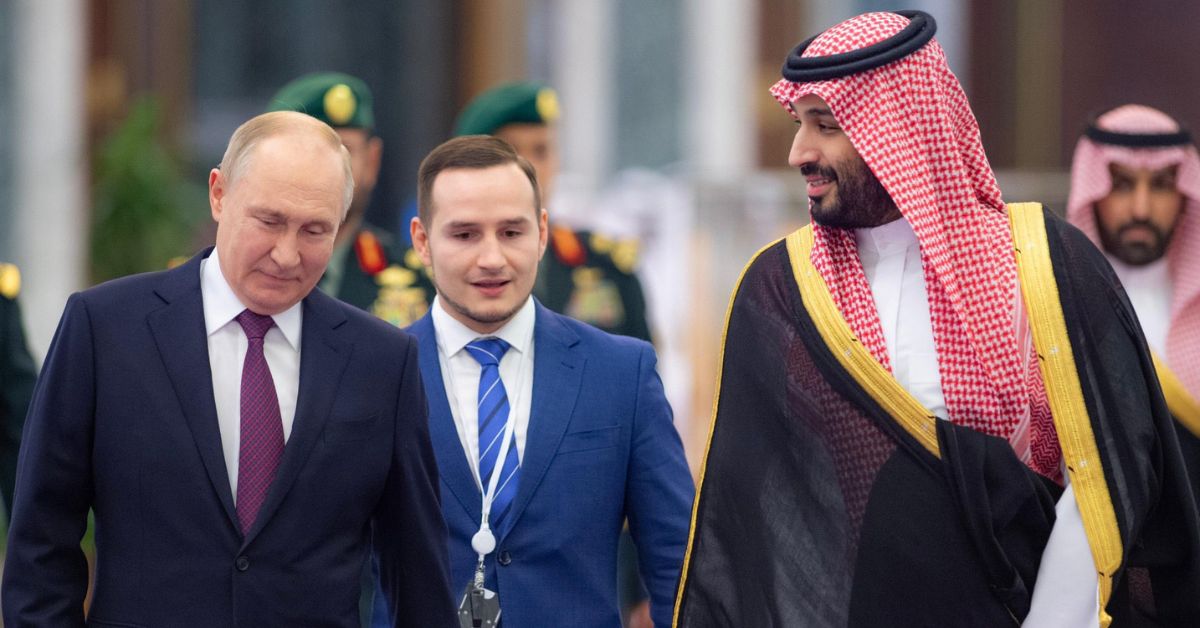RIYADH — In a significant development during his visit to Riyadh, Russian President Vladimir Putin proposed the creation of a joint fertilizer company with Saudi Arabia.
The announcement came as Putin met Saudi Crown Prince Mohammed bin Salman Al Saud, indicating a potential expansion in bilateral trade and economic relations.
During the discussions, Putin introduced Russian businessman Dmitry Mazepin, who specializes in fertilizers, to the Crown Prince. Putin suggested the possibility of forming a substantial joint company in the fertilizer industry, capitalizing on Saudi Arabia’s status as a significant producer and exporter of fertilizers, particularly phosphate and nitrogen.
OPEC+ cooperation affirmed
The talks also encompassed cooperation within OPEC+, as confirmed by Russian Presidential Spokesman Dmitry Peskov. He emphasized the mutual understanding between Russia and Saudi Arabia regarding their crucial roles in maintaining a stable and predictable international energy market. Both parties agreed to continue their collaborative efforts under OPEC+.
The Saudi Crown Prince acknowledged the efficiency of Russia-Saudi Arabia interactions, highlighting significant achievements in energy, agriculture, trade, investments, and other areas. The Saudi Crown Prince referred to Putin as a “dear and special guest” and expressed satisfaction with the progress in bilateral cooperation.
According to Kremlin Spokesman Dmitry Peskov, Putin and the Saudi Crown Prince continued their dialogue in a one-on-one setting following an expanded meeting with delegations from both countries.

Mohammed bin Salman invited to Russia
The discussions, lasting over three hours, covered bilateral relations, regional issues, and an invitation from Putin for Mohammed bin Salman to visit Russia, which the Crown Prince accepted.
The meeting at Al Yamamah Palace concluded with discussions on the development of bilateral relations and regional situations.
Putin’s visit, which followed his trip to the United Arab Emirates, received a warm welcome in Riyadh, underscoring the strengthening ties between Russia and Saudi Arabia.
Putin has since March been wanted for war crimes by the International Criminal Court (ICC) that has accused him of deporting Ukrainian children.
He skipped the BRICS summit in South Africa in August to avoid causing a “political show” and missed the in-person flagship G20 summit in September.
But neither the UAE nor Saudi Arabia have signed the ICC’s founding treaty, which means they would not have to arrest him.
Sensing reviving fortunes
“Putin has certainly been speaking more confidently now than any time since the war began,” said Nigel Gould-Davies, senior fellow for Russia and Eurasia at the International Institute for Strategic Studies.
Russia’s defensive lines largely held against a counteroffensive that Ukraine launched with billions of dollars worth of arms from the West, where aid to Ukraine is under debate.
And Moscow has learned to adapt to Western sanctions, with oil revenue rebounding.
Trade and oil will be on the agenda in the UAE, which a Kremlin statement said is “Russia’s main economic partner in the Arab world”.
Bilateral trade between the two countries reached a record $9 billion in 2022, the Kremlin said.
Moscow is pressing its diplomatic push among energy-rich and influential Middle East countries, including with Saudi Arabia.

Saudi-Russia cooperation
Cooperation between Russia and Saudi Arabia is “a reliable guarantee of maintaining a stable and predictable situation on the global oil market,” the Kremlin said ahead of the meeting.
The leaders discussed international politics, including the war between Israel and Hamas.
The Kremlin praised the “great importance of maintaining dialogue with the Kingdom to preserve peace and security in the Middle East and North Africa.”
The two leaders reviewed “ways to promote de-escalation” in the conflict, the Kremlin said.
Upon his return to Moscow, Putin will host Iranian President Ebrahim Raisi for talks on Thursday, the Kremlin has said, as the two countries strengthen economic and military ties in the face of Western sanctions.
(With agency inputs)









